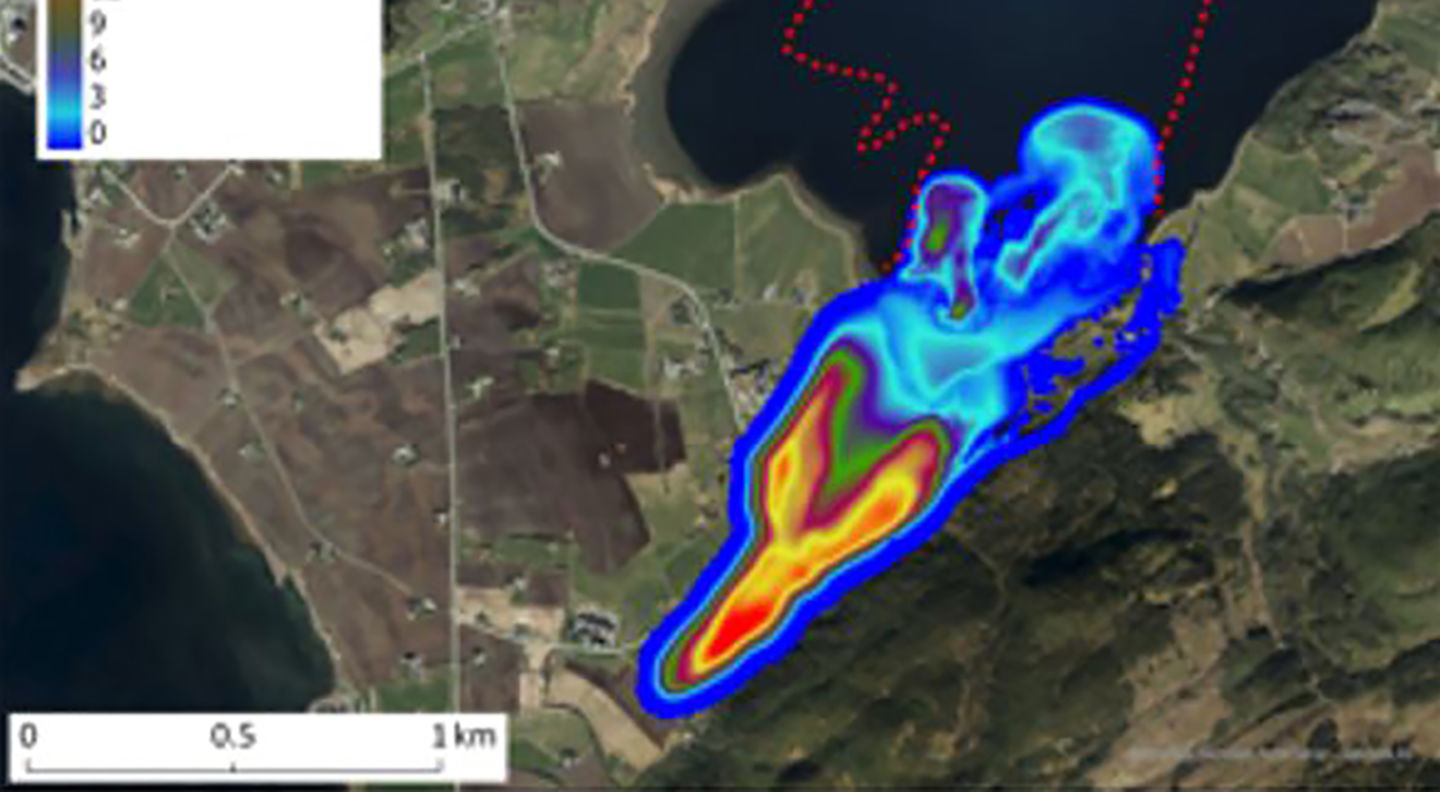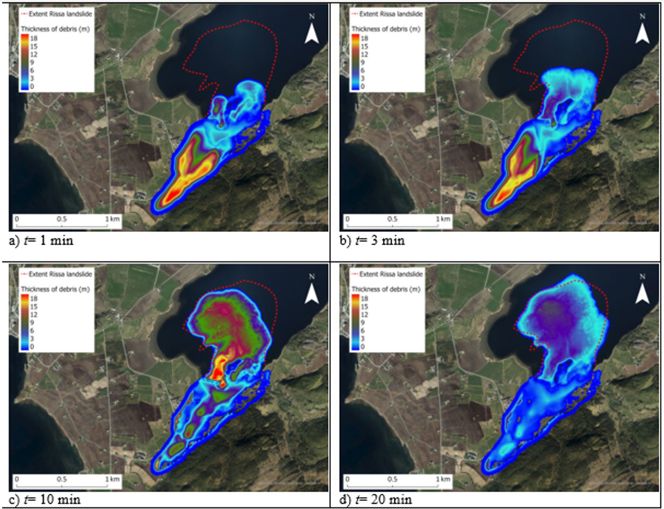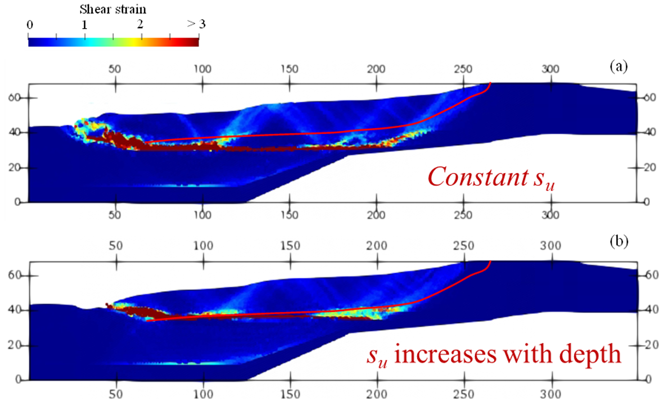NGI-GBV – Coupled failure and runout modelling

There is today no reliable approach to model the complete process, including initiation and run-out, of landslides in sensitive clays, both on land and offshore.
A better understanding and modelling of the entire process would help assess more correctly potential release zones for landslides in sensitive clays, and thereby lead to a better hazard zone mapping than what is done today. The purpose of the project is to model landslide initiation and propagation (mobility) with the coupled Eulerian-Lagrangian (CEL) version of the finite element method (FEM)-based program ABAQUS in 3D. The project includes a collaboration with Tongji University (Shanghai, China). Tongji was awarded recently an international research Center of Excellence on Resilient Infrastructure (ICRI) to which NGI is a partner.

Predicted Rissa landslide propagation versus time, plan view, modelled by BingClaw. Red dotted curve is the mapped landslide extent. (Liu et al. 2021).
Landslides in sensitive clays are usually triggered by natural causes (e.g. erosion in ravines, intensive rainfall) and/or human activity (e.g. construction work). The propagation of such landslides often exceeds several hundred meters. It is vital to model the complete process, including initiation and runout, of landslides in sensitive clays to improve the hazard zone mapping method in use today.
NGI, in collaboration with Tongji University (Shanghai, China) and NTNU, is currently conducting the material point method (MPM)-based and the coupled Eulerian-Lagrangian (CEL) version of the finite element method (FEM)-based simulations to investigate the runout behaviour of sensitive clay landslides.

Shear band of the landslide for different distributions of undrained shear strength in the quick clay layer: (a) constant value, (b) increase of shear strength with depth. Red curve is the sliding surface interpreted from the in-situ CPTUs

Zhongqiang Liu
Senior Specialist Slope Stability and Risk Assessment zhongqiang.liu@ngi.no+47 479 29 799